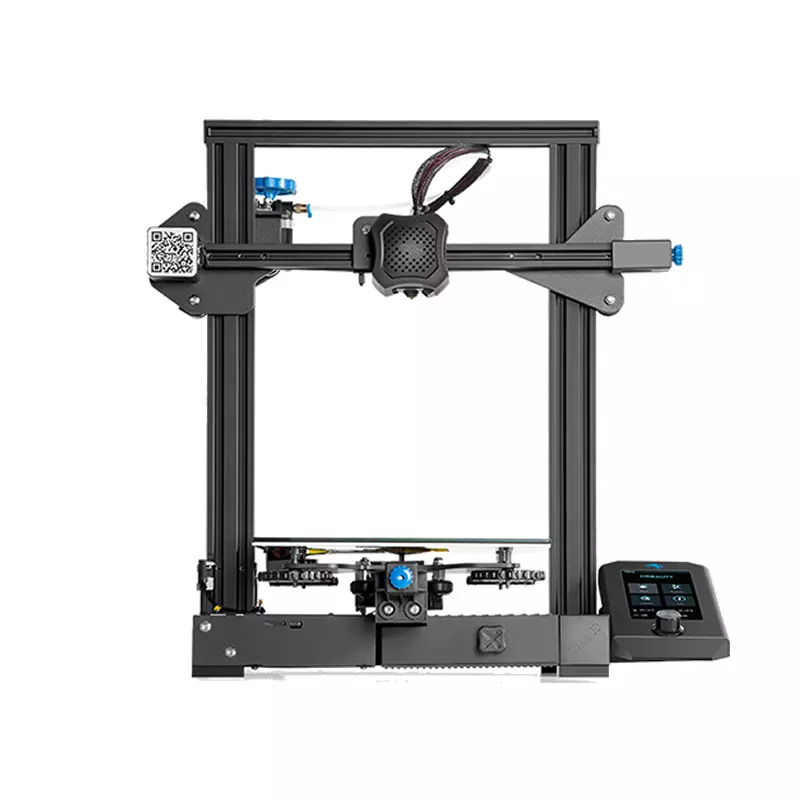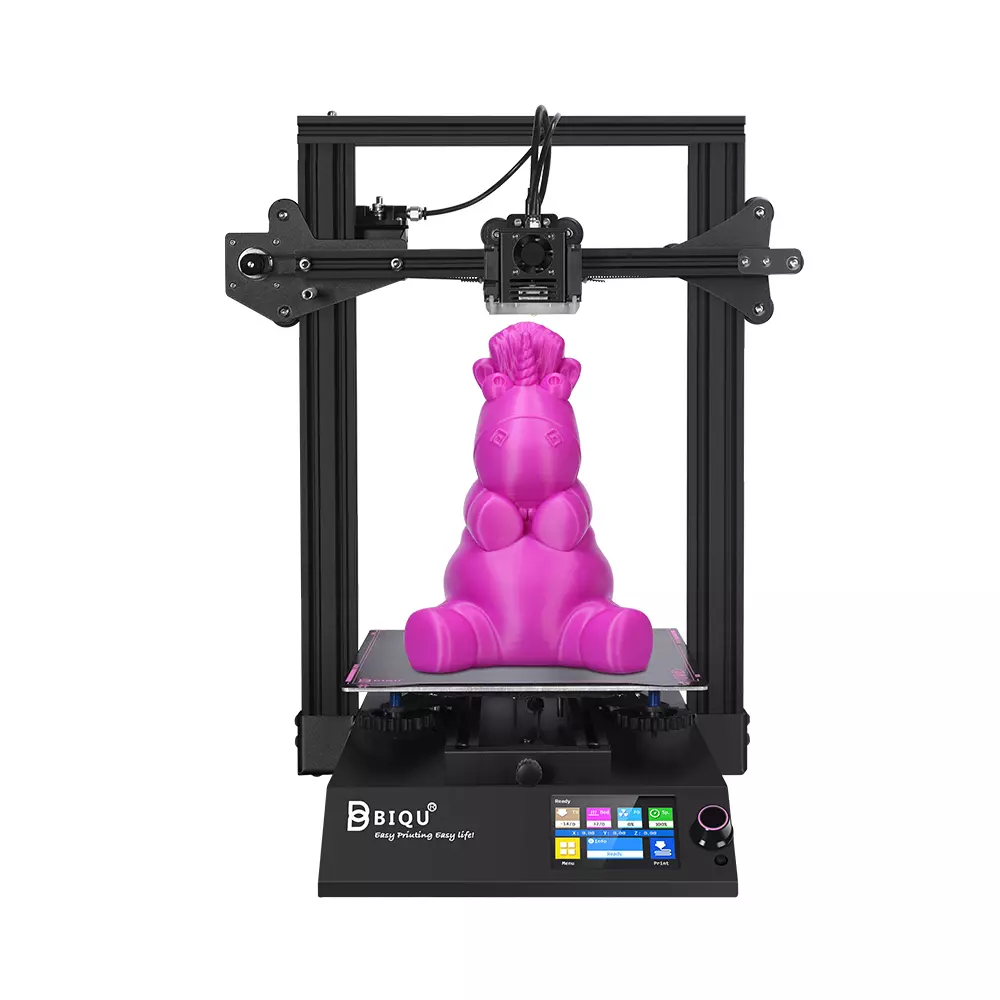Compare Ender 3 V2 vs BIQU B1
Comparison between the best 3D printers
Choose the best 3D printer at the best price. The cheapest 3D printers are here.
Buy a 3D printer here with 3D Fila.
 |
 |
|
| Model | Ender 3 V2[BUY Ender 3 V2] |
BIQU B1 |
| Printing Material | Filament | Filament |
| Buy Filament for Creality 3D Ender 3 V2 | Buy Filament forBigTreeTech BIQU B1 | |
| Estimated price | $289,00 | $269,00 |
| Manufacturer | Creality 3D | BigTreeTech |
| Release Year | 2022 | 2020 |
| Print Volume [mm] | 220x220x250 | 235x235x270 |
| Printer Size [mm] | 470x475x620 | 412x402x492 |
| Weight [kg] | 7,8 | 8,00 |
| Power Loss Recovery | YES | YES |
| Enclosed printer | NO | NO |
| Bed Leveling | Manual | Manual |
| Filament End Sensor | NO | YES |
| Bed type | Heated | Heated |
| Power supply system | Bowden | Bowden |
| Standard nozzle | 0,4 | 0,4 |
| Maximum Nozzle Temperature [°C] | 255 | 250 |
| Maximum Bed Temperature [°C] | 100 | 100 |
| Maximum printing speed [mm/s] | 180 | 100 |
| Filament holder | YES | YES |
| Camera for supervision | NO | NO |
| Recommended filaments | PLA, TPU, ABS, PETG | PLA, TPU, ABS, PETG |
| Recommended slicers | Cura, Simplify, Slic3r | Cura, Simplify, Slic3r |
| Maximum Resolution [mm] | 0,1 | 0,1 |
| Processor | 32 bits | 32 Bits BTT SKR V 1.4 |
| Display | Touchscreen TFT 4,3'' | Touchscreen TFT 3,5'' |
| Power Supply | 24V / 360W | 24V / 360W |
| Connectivity | SD / USB | SD / USB |
| Operating systems | Windows, Mac, Linux | Windows, Mac, Linux |
| Date of registration in the system | 2021-04-15 | 2021-04-14 |
| Release date | 2022 | 2020 |
| Extra features | The Creality Ender-3 V2, with a design inspired by the Prusa i3 series, stands out for its DIY assembly structure. With an area of ??250x250x250mm, it supports a variety of projects. It has a micro-USB port, microSD slot and integrated tool drawer. The tension adjustment adapts to different regions. Its manual print bed leveling process requires attention, but offers an enriching experience. Ideal for 3D printing enthusiasts willing to invest time in assembly and adjustment. | The BIQU B1 is an advanced 3D printer with a silent 32-bit BTT SKR V1.4 motherboard and ARM Cortex-M3 CPU, offering DIY interfaces (I2C, SPI, WiFi) and dual Z-axis. Its dual BTT B1 TFT35 V3.0 operating system allows real-time monitoring and multiple printing modes, including G-code visualization effects. It stands out for its BIQU SSS (Super Spring Steel), ensuring easy model adhesion and simplified removal, with the possibility of using it on both sides. It includes a filament sensor, automatically pausing printing in case of filament breakage. The multicolored RGB lights integrated into the hotend allow you to view the printing status even at night. Additional notes include the need for a BIQU-specific Type-C cable and extra interfaces for smart filament sensor and BL Touch. |
| Support for multiple colors and materials (AMS and CFS) | NO | NO |
Notes * |
||
| Cost-benefit | 7 / 10 | 7 / 10 |
| Hardware | 1.8 / 10 | 2 / 10 |
| Tela | . | . |
| Print volume | 3 / 10 | 3 / 10 |
| Performance | 1 / 10 | 1 / 10 |
| [BUY Ender 3 V2] |
Conclusion |
| In comparing the Ender 3 V2 and the BIQU B1, both 3D printers offer unique advantages tailored for different user preferences and needs. The Ender 3 V2, released in 2022, is known for its robust assembly and DIY structure popular among 3D printing enthusiasts. It boasts a slightly smaller print volume but is still versatile, supporting a range of filament types. Its manual leveling process can be a learning opportunity for new users, and while it lacks advanced features like a filament sensor, it remains a reliable choice for traditional printing tasks. On the other hand, the BIQU B1, released in 2020, comes with additional features such as a filament end sensor and dual Z-axis, making it a good option for users seeking more automation in their printing process. Its larger print volume and integrated real-time monitoring capabilities via its dual TFT display provide enhanced usability. However, it may appeal more to those familiar with configuring and tweaking modern 3D printer technologies. In conclusion, both printers present considerable value for their price. The choice ultimately depends on user priorities: those who prefer a straightforward, time-honored design may lean towards the Ender 3 V2, while users looking for extra functionalities and a more modern interface might find the BIQU B1 more compelling. Each printer has its strengths, and the best option hinges on individual preferences in features and ease of use. |

